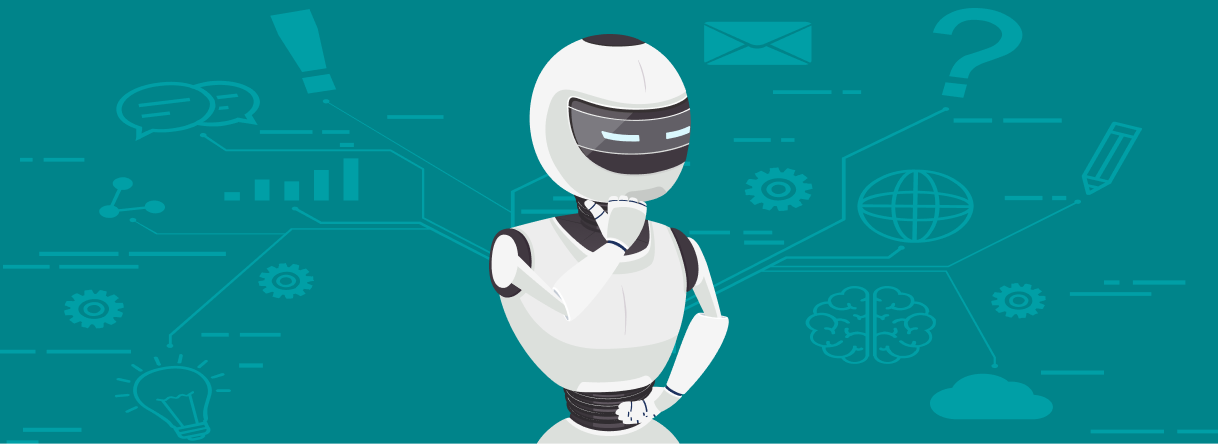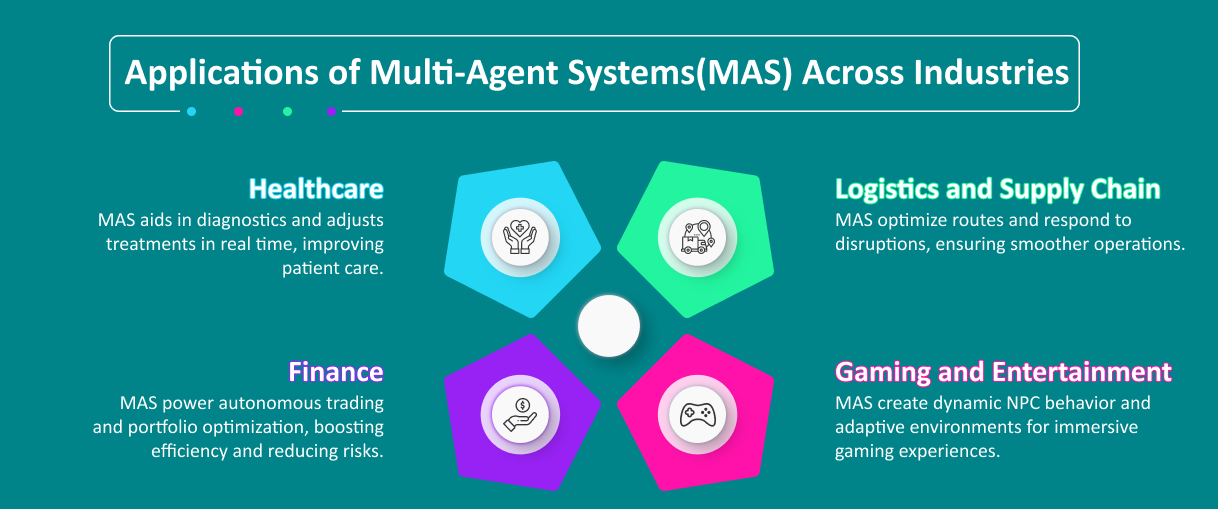
Multi-agent systems (MAS) are transforming artificial intelligence (AI) by enabling decentralized intelligence. Unlike traditional AI, where one entity controls decision-making, MAS involves multiple autonomous agents that collaborate to solve complex problems, creating collective intelligence. This approach enhances flexibility, scalability, and adaptability.
MAS is already making an impact in industries like healthcare, finance, and logistics. In this blog, we’ll explore the growing relevance of MAS applications, their advantages, and future trends shaping the field of multi-agent systems in AI.
What Are Multi-Agent Systems (MAS)?
A Multi-Agent System (MAS) is an adaptive AI system where multiple autonomous agents work together to solve problems in dynamic environments. Each agent acts independently but collaborates with others to achieve shared goals, using distributed intelligence.
Key characteristics of MAS include:
- Independence: Autonomous agents make decisions without relying on centralized control.
- Interactivity: Agents communicate and collaborate.
- Adaptability: Agents adjust to changes in the environment.
Unlike traditional centralized AI systems, MAS is decentralized, offering more flexibility and scalability. Examples of MAS include ant colonies, bird flocks, autonomous vehicles, and robotic swarms.
Core Components of Multi-Agent Systems
A Multi-Agent System (MAS) rely on key components for decentralized collaboration.
- Agents: At the core of MAS are autonomous agents with specific goals and capabilities, ranging from simple tasks to complex adaptive behaviors.
- Communication Protocols: Communication protocols allow agents to exchange information and coordinate actions toward shared goals.
- Decision-Making Mechanisms: MAS architecture enables agents to balance local goals with global objectives through decentralized AI decision-making.
- Technologies Enabling MAS: IoT and cloud computing provide the infrastructure for agents to interact, process data, and collaborate.
Applications of Multi-Agent Systems Across Industries
Multi-Agent Systems (MAS) are revolutionizing industries with decentralized collaboration and real-time decision-making.
Advantages of Multi-Agent Systems
Multi-Agent Systems (MAS) offers key benefits for various applications.
- Scalability: MAS manages large, complex environments by distributing tasks across autonomous agents.
- Flexibility: MAS adapts in real-time to changing conditions.
- Efficiency: Optimized resource allocation and decision-making enhance productivity.
- Innovation: MAS and decentralized AI enable new, groundbreaking solutions in collaborative systems.
A robust MAS Architecture is fundamental to achieving these benefits, ensuring that agents interact seamlessly and effectively tackle both local and global challenges.
Future Trends and Innovations in MAS
The future of Multi-Agent Systems (MAS) is set to see exciting advancements:
- Reinforcement Learning: Enhancing MAS by enabling agents to learn and adapt over time.
- Emerging Technologies: Integration with blockchain, edge computing, and IoT for more secure, real-time systems.
- Hybrid Systems: Combining MAS with deep learning, NLP, and cognitive computing for advanced, intelligent systems.
- Explainable AI (XAI): Increasing transparency and trust in MAS through better understanding of decision-making.
Practical Steps for Businesses to Leverage MAS
To leverage Multi-Agent Systems (MAS), businesses can follow these steps:
1. Identify Use Cases
Pinpoint areas where MAS can add value, such as healthcare, logistics, and finance, to optimize operations and decision-making.
2. Collaborate with MAS Experts
Partner with solution providers who specialize in MAS to implement tailored technologies that integrate smoothly with existing systems and a strong MAS Architecture.
3. Build Supporting Infrastructure
Ensure your infrastructure supports MAS by adopting technologies like cloud computing and IoT for effective agent communication and collaboration.
End Note
Multi-Agent Systems (MAS) are transforming industries by enabling decentralized intelligence and collaborative problem-solving. Their ability to adapt in dynamic environments enhances efficiency, scalability, and flexibility, benefiting sectors like healthcare, finance, and logistics.
With a well-designed MAS Architecture, businesses can harness the full potential of adaptive AI systems to drive innovation, optimize resources, and improve responsiveness to market changes. Multi-agent systems in AI offer a competitive edge in the AI-driven future.

Krunal Bhimani
Business Development Executive








